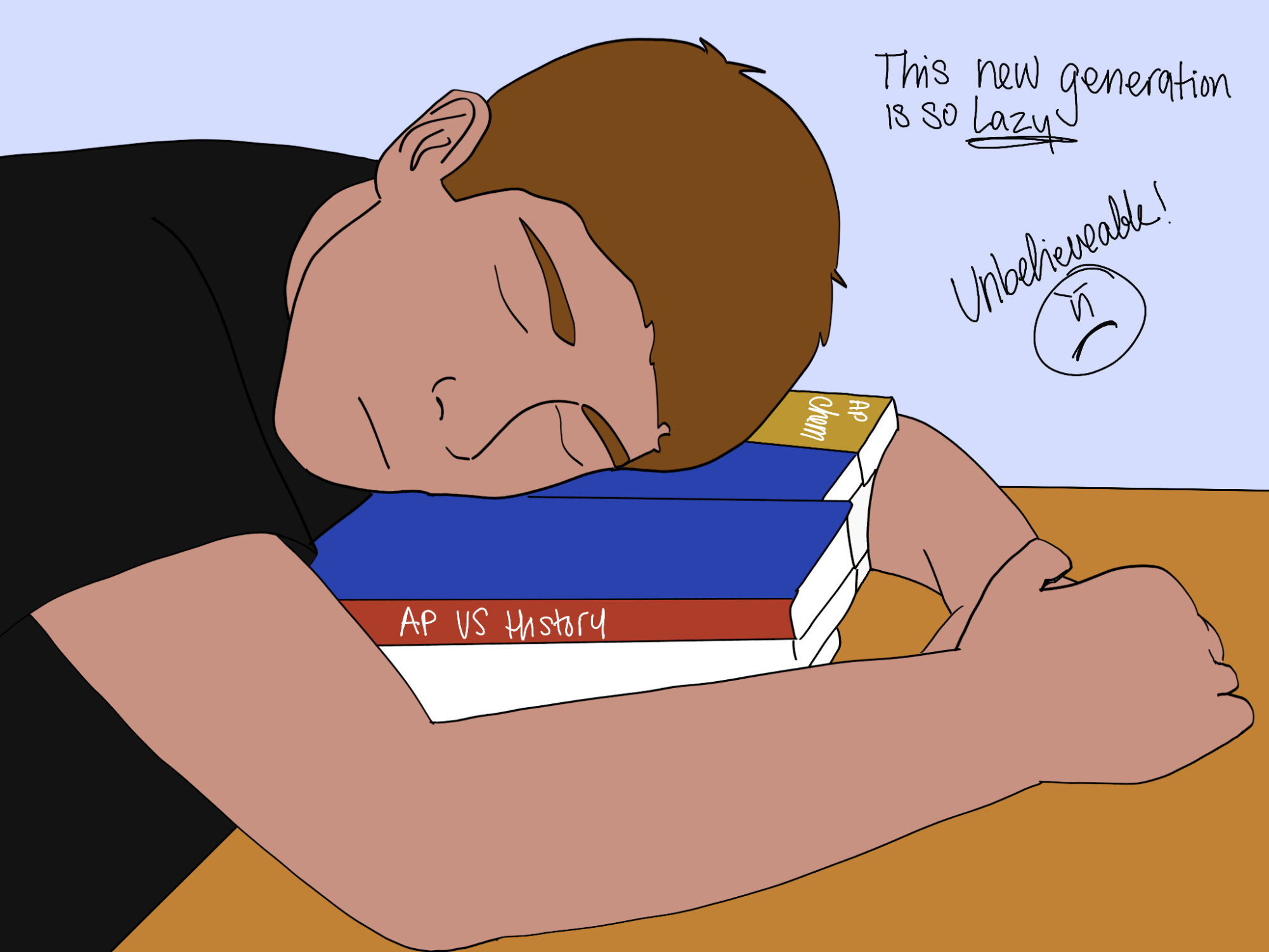WJ students: working hard or hardly working?
The truth is, WJ students are not doing all their work. Students have learned how to “game the system” and get by in classes by using minimal effort. For example, students often decide not to do homework due to the low impact it has on their grade.
A student’s overall grade is usually split into two parts, a 90% category of All Task (AT) Assignments that is made up of tests, projects, etc. and a 10% Practice and Prep (PP) category made up of homework and less important assignments.
Students focus on the AT category more because of the higher weight it holds on their grade. With all effort put into AT assignments, students often decide to place PP assignments onto the backburner. Since these assignments count for such a small percentage of their grade, students believe they can do just fine in the class without completing them.
Although PP assignments do not have a large impact on a student’s grade, they are still an important part of preparing for tests and quizzes. Without them, students could easily fail tests due to lack of preparation. But, a lack of motivation gets in the way of them doing these assignments because they think it’s not worth the effort.
Some argue that students are overworked and do not have a sufficient number of breaks and days off during the school year. But, students have a whole summer in addition to countless holidays off during the school year. In the future, when students are employed, they must be prepared to work all year round with significantly less time off than they get now.
Also, students get an hour off for lunch. This gives ample time for them to rest and recuperate for the last three periods of the day. It also provides them time to complete their homework and other assignments that they are too tired to complete later at night.
School starts at 7:45 a.m., which is very early and can leave students tired throughout the day. However, a solution to this could be students going to sleep an hour or two earlier, leaving them with more than enough energy to get through the whole day.
Certain students say that due to the heavy workload, they are not able to get enough sleep and would be unable to go to bed any earlier than they do. But with better time management skills, students would learn to take advantage of resources such as the long lunch break in order to catch up on work.
WJ could also implement a study hall during the day to encourage students to catch up on work; however, the long lunch is already essentially a study hall. Adding another part to the school day would just make the day too long and burn out students.
A more effective strategy would be to make PP assignments worth 20% of a student’s grade instead of only 10%. This would require students to complete this work if they wanted a good grade in the class and would relieve the pressure off students when it comes to the importance of AT assignments.
Students aren’t lazy. Saying the opposite completely ignores all factors that a student has to deal with on a daily basis. College applications, standardized tests, APs, base classes, extracurriculars, family and friend conflicts are just some of the aspects of high school that students have to navigate.
When you see a friend or classmate taking some time to just scroll on their phone, skipping a period or just not paying attention in class, don’t automatically assume that it’s due to laziness. Sometimes after a busy day or a busy week, people need a calm 45-minute period to themselves to recollect and relax.
We go through seven 45-minute periods a day, five days a week, for about 40 weeks with minimal breaks in between. Many students can’t even count weekends as breaks. For students taking higher-level courses, weekends consist of a lot of homework and studying. This is all while students try to take advantage of the off days to maybe take up a job or get some extracurricular activities in. It leaves very little time for rest and relaxation.
That’s why you see “laziness” in the classroom. It’s not simply because students don’t want to be active in class or do their work; it’s simply that they don’t have the energy.
Are WJ students lazy, or just overworked?
Sorry, there was an error loading this poll.
With all that students go through, it doesn’t help when teachers give busy work in classes, mainly in the form of practice/prep assignments. That’s not to say that all of these assignments are meaningless, they can definitely be beneficial, but putting grades on assignments that some students don’t necessarily need to do further generates this matter. Students who have the time and feel the need to do these small assignments can do them, but they shouldn’t be forced upon the students who don’t have the time or simply the need for them.
Wellness breaks are useful but very poorly executed. There is a lot of confusion about what subject has wellness and they are not strictly enforced. These breaks are a great idea and start to the solution, but have not reached their full potential.
When calling students lazy, you also forget about the early start time. With school starting at 7:45 each morning, students aren’t able to get the necessary amount of sleep they need as teenagers without going to sleep early. This is hard with all the homework and extracurriculars that they deal with daily, leaving very little time for themselves to relax. If MCPS wants to help with student “laziness” and chronic absenteeism, pushing school start time would be a great start.
Yes, there are lazy students, but there’s a large difference between lazy students and overworked students with many of their actions being similar and it is important to recognize that difference.
Your donation will support the student journalists of Walter Johnson High School. Your contribution will allow us to purchase equipment and cover our annual website hosting costs.











